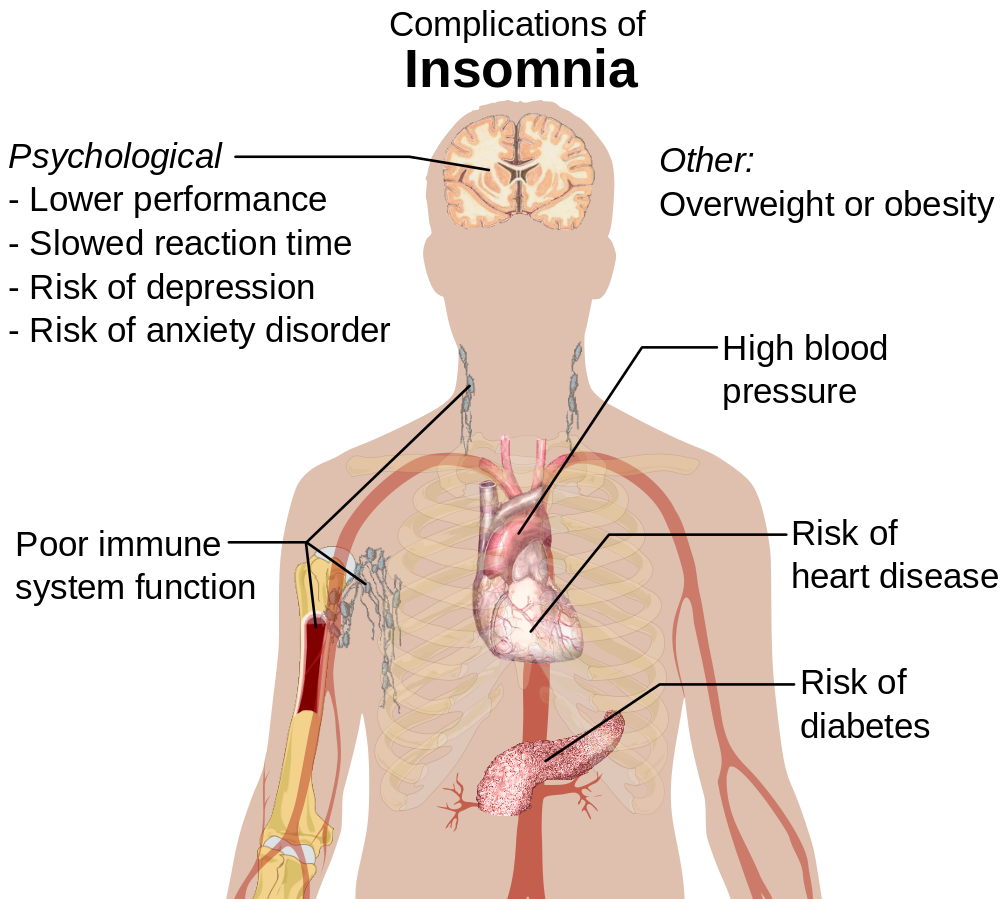Insomnia- A Common Sleep Disorder Suffered By Millions Across The Globe

By neucrad health February 17, 2019
Do you experience difficulty falling into sleep? Do you struggle to stay asleep for a sufficient duration to feel rested? If these are related to you, then do not panic as it is a pervasive phenomenon. There are millions of individuals across the world experiencing the same feelings. We all know how challenging it can be when one encounters a night of bad sleep. Now, when this condition becomes a regular affair, then it can take a severe toll on the mental, physical, and psychological state of an individual. Here is a write-up exclusively dealing with the types, causes, and treatment of a significant sleep disorder- insomnia.
What is Insomnia?
Insomnia is a widespread sleep disorder where individuals experience difficulty falling into sleep, staying asleep adequately throughout the night or both. People often wake up feeling unenergetic and remain fatigued during the day. The situation can become so critical that insomniacs find it challenging carrying out their day to day activities. It may even lead to depression or shooting of blood pressure. They often seek expert guidance or undergo sleep therapies to get back into the mainstream. [1]
How Common is Insomnia?
Insomnia is a pervasive sleep disorder affecting millions of people. The situation has become so critical that the American Academy of Sleep Medicine has declared 12th March 2018 as Insomnia Awareness Day. Approximately 30 to 35 per cent adults in the United States experience brief stints of insomnia at some stages in their life. About 15 to 20 per cent of people have short-term insomnia disorder which barely lasts for more than three months at a stretch. However, 10 per cent people experience chronic insomnia symptoms which prevent them from sleeping sufficiently for at least three days in a week for three months duration at a time. [3]
Types of Insomnia
Based on the nature of the sleep disorder, Insomnia is characterised under two major subheads- Primary insomnia and secondary insomnia. In the case of primary insomnia, affected person experience sleep insufficiency which does not remain directly linked to any other medical condition. Secondary insomnia results from other medical issues including asthma, arthritis, depression, heartburn, cancer, substance abuse, or side-effects of medication. [6]
Physicians also classify insomnia into acute and chronic types. Acute insomnia is a short-lived condition which comes and goes for brief phases. It may last for a single night or a few weeks; however, it barely stretches beyond three months. Chronic insomnia is a complicated health issue where patients experience challenges in sleeping for at least three times a week for months together. [6]
Symptoms of Insomnia
People often report one or more of the below-mentioned symptoms while experiencing insomnia. [2]
- Difficulties in falling or staying asleep
- Waking up too early in the morning
- Feeling sleepy during the day
- Irritability, mood swings
- Fatigue
- Difficulty in concentration.
Causes of Insomnia
Causes of insomnia depend on the nature of the sleep disorder. Acute insomnia usually results from the following factors. [6]
- Stressful life conditions including job change
- quitting of jobs, the death of a beloved
- relocation, or divorce
- Emotionally or physically traumatic experience
- Environmental factors interfering sleep like extreme weather conditions, noise or light
- Interferences in the daily schedule like shifting from day shift to night shift in jobs or jet lag
- Side-effects of medicines used for treating allergies, cold, depression, asthma, and high blood pressure
- Causes of chronic insomnia can be depression, anxiety, physical pain due to medical issues, cardiovascular disease, menopause, or chronic stress.
What are the Treatments for Insomnia?
Physicians rely on both pharmaceutical and nonpharmaceutical procedures for treating insomnia. The American College of Physicians (ACP) advocates the use of cognitive behavioural therapy for curing chronic insomnia in adults. Here the therapists implement behavioural treatment along with cognitive measures centred around individuals’ thoughts and beliefs. This type of treatment influences the actions and moods of patients and shifts their behavioural patterns to healthier ones. [4]
Beside this, sleep hygiene training like staying away from caffeinated beverages or alcohol near bedtime, keeping electronic gadgets like smartphone tabs out of bed, and creating an ambient environment helps in treating insomnia. There are also prescription medicines for sleep disorders. However, doctors try to avoid them as they may lead to adverse health effects later on in life.
Image credit: By Mikael Häggström, used with permission, CC





